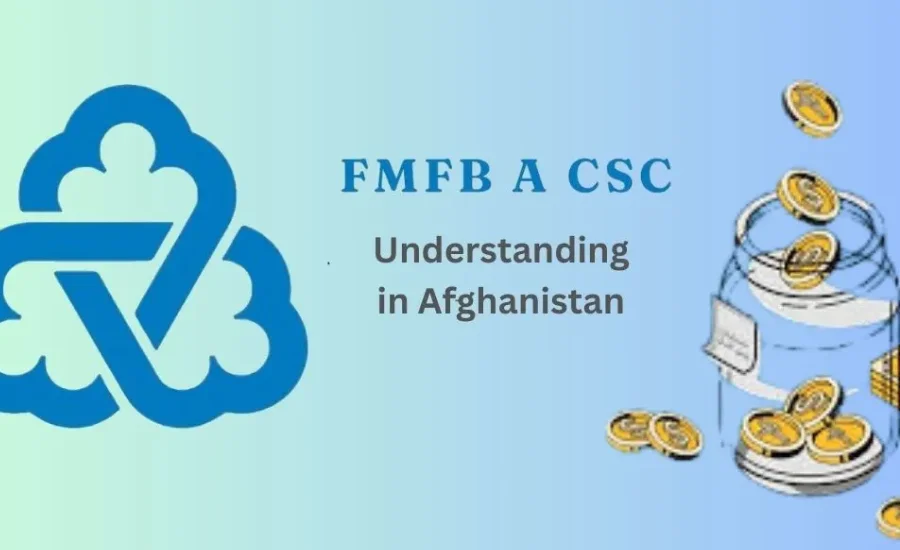Discover a pathway to economic empowerment in Afghanistan with us! Today, we explore the dynamic realm of microfinance, focusing on the impactful collaboration between the Fmfb a csc. Follow along as we uncover how this innovative partnership is paving the way for a prosperous tomorrow for Afghan societies.
The Impact of Microfinance on Economic Development in Afghanistan
Microfinance in Afghanistan is a major driver of economic development and self-empowerment for the poor. Institutions like Fmfb a csc are vital in providing microcredit, loan products, savings accounts and basic financial services.
Microfinance is lending small amounts of money at low interest to new businesses and entrepreneurs who have been excluded from traditional banking systems so they can be encouraged, start business with the help of that, create employments for others, reduce their own cost and increase their income. Furthering financial inclusion, microfinance encourages a grass root level entrepreneurship and self-sustainability thereby developing strong communities.
Microfinance initiatives also help to protect people against economic fluctuations and external shocks. Access to Finance. In a difficult economic environment that Afghans are facing, access to financial resources helps individuals and businesses address uncertainties better which ensures sustainable economic stability.
The Impact of Microfinance in Afghanistan
Microfinance plays a crucial role in Afghanistan, providing essential financial resources to individuals and small businesses, thereby fostering growth and sustainability. Through microloans, savings products, and various financial services, microfinance institutions contribute significantly to economic development and financial inclusion nationwide.
Overview of FMFB (First Microfinance Bank)

FMFB stands as a pioneering institution in Afghanistan’s microfinance landscape, established with the goal of offering comprehensive financial solutions to enhance economic development and improve the quality of life for Afghan citizens.
Key Services Offered by FMFB
FMFB offers a wide array of services that are customized to fulfill the needs of Afghan communities:
LoansFMFB provides an array of loans ranging from business to personal and microloans, all targeted at the needs private entrepreneurs and their associates in achieving financial independence
Savings Accounts : Customers are offered attractive safe saving options from FMFB to save their hard earn money and get in return handsome profits allowing them fo be financially secure, stable.
Insurance Products: It also offers insurance products which protect the client from an unexpected loss of their financial resource and thus increases commodity held as a measure against risk accidentally.
Fixed Deposits: Wakala Term Deposit and MudarabahMudarabaTerm Deposit provide competitive long term savings with various financial requirements;
Impact on Afghan Communities
FMFB’s services have a profound impact on Afghan communities by facilitating access to financial resources. This support enables individuals to establish and expand businesses, secure their savings, and enhance their financial literacy. Particularly in remote and underserved areas, FMFB fosters economic resilience and growth, empowering communities to thrive economically.
FMFB-A’s Collaboration with the Civil Service Commission
The partnership between Fmfb a csc represents a significant milestone in advancing financial inclusion across Afghanistan. Together, they facilitate access to microfinance services for civil servants nationwide, expanding financial opportunities to previously underserved populations.
Through this collaboration, FMFB-A extends its reach to a broader audience, including civil servants who lacked access to formal banking services. The CSC plays a pivotal role in connecting its employees with FMFB-A’s microfinance offerings, thereby enhancing financial literacy and stability among civil servants.
By leveraging synergies and resources, Fmfb a csc contribute to economic development by fostering financial independence and resilience within Afghan communities. This partnership exemplifies a collaborative approach to improving livelihoods and promoting sustainable growth in Afghanistan.
Crypto Support Centers (CSC)

Introduction to CSC
Community Support Centers (CSCs) are at the heart of local community development and individual empowerment in Afghanistan. The fact that these centers provide financial inclusion and literacy cate for an important demographic is something to take note of.
Services Provided by CSC
CSCs respond in partnership to the demand for services within their communities with a wide range of programs.
For example, Financial Literacy Training – Spreading knowledge among people about how they can manage their income and expense wisely.
Financial Inclusion: The connection of microfinance services to individuals who are unable to access these affordable financial products, such s credit and savings mechanisms.
Entrepreneur Support: Tap into resources, training and mentorship to grow your small business or launch new entrepreneurial efforts.
Develop tailored community programs for the unique needs and challenges of their specific surrounding communities.
CSC Has an Important Role in Economic Development
The CSCs provide essential services, the delivery of which helps immensely in economic growth and development within Afghanistan. They connect people and businesses with the capital they need to thrive, contributing to a more inclusive and resilient economy.
Micro-Finance and Economic Growth
Economic Development The need for greater economic development and financial fine inclusion is fundamental to maintaining swift, sustainable growth. The First Microfinance Bank (FMFB) and CSCs are leading the cause by growing financial inclusion in Afghanistan.
Job creators belong among the thousands of entrepreneurs who are helping drive our recovery. To smooth the path from entrepreneurial inspiration to market success, microfinance institutions provide Afghan entrepreneurs with start-up and expansion capital. It argues that this support is beneficial not just to the livelihoods of individuals but also for wider economic growth.
In Afghanistan, many women struggle to gain access to financial services due to moderate control from a male-dominated society. Microfinance institutions are important in enabling women through loans, savings accounts and financial literacy training. This empowerment leads to more income for women languishing under poverty and communities can actually be built on one another.
challenges and Solutions in Afghan Micro-Finance
Key Challenges: The microfinance sector in Afghanistan has made significant progress, but continues to be beset by a number of serious challenges that have raised concerns.
Security Risk: The potential continued war and instability makes opening it a risk to the continuation of microfinance operations.
Underdeveloped Infrastructure: These are regressive areas where the necessary financial infrastructure does not exist.
Inadequate Financial Literacy: a substantial proportion of the population are uneducated on-basic financial knowledge to allow effective usage and benefit from accessible financial products.
Addressing the Challenges
The few ways in which the microfinance institutions are coping up with these challenges.
Harness Digital Solutions: Enable last mile access through mobile banking and online solutions, in a secure way to transact.
Programs Financial Literacy: Investment in comprehensive financial literacy programs to help people learn the steps of managing money.
While Afghanistan-based microfinance institutions are grappling with such problems they use innovation and a network of assistance partners to negotiate their way, unlocking some path-breaking work toward financial inclusion in an effervescent economy.
Impact of Fmfb a csc Partnership on Economic Development

Working with the Fmfb a csc, has helped economic development in Afghanistan, through FMFB-A and civil servants. This partnership serves as an opportunity for both people and enterprises to gain access to microfinance services enabling them towards investing in their own future. This initiative through its various communities has started entrepreneurship for many, created jobs and increased income levels of the rural artisans.
The complementary financial solutions by Fmfb a csc are catalysing the goal of bringing these underserved populations under an efficient coverage. Small loans can transform budding entrepreneurs into successful businessmen, thereby playing a crucial role in the national economic prosperity. This in turn helps the local economy grow and motivate more such businesses to be opened.
Beyond numerical impact, this partnership is about transforming lives and establishing sustainable livelihoods. By equipping individuals with the necessary financial tools, Fmfb a csc are laying the foundation for long-term prosperity in Afghanistan.
Success Stories of Microfinance Clients
Consider Zahra, a young woman with a dream of starting her own tailoring business but lacking the financial means. Thanks to Fmfb a csc , Zahra secured a microfinance loan that enabled her to purchase sewing machines and fabrics.
Through dedication and hard work, Zahra’s business flourished, attracting clients from across her community. She expanded her operations, providing employment opportunities to other women and offering training programs.
Zahra’s success story exemplifies how microfinance can empower individuals to become self-sufficient entrepreneurs, creating a ripple effect of economic empowerment throughout their communities.
FMFB’s Innovative Financial Solutions
FMFB trust also provides a financing solution using Murabaha, which is a Sharia compliant means of raising funds for working capital Loans to Customers based on their business requirement (Business expansion and Asset acquisition). This way, even those choosing Islamic banking principles can access financial services.
One of FMFB’s flagship products, the Wakala Term Deposit gives clients a premium on their savings. The same is the case with this product by helping its customers to save for long-term and be financially on track.
Mobile and Online Banking
Utilizing advanced technology, FMFB offers mobile and online banking services, enabling clients to access their accounts, transfer funds, and manage their finances from any location. This digital approach is essential for reaching remote areas and promoting financial inclusion.
The Impact of Microfinance on Afghan Communities

Real-Life Success Stories
Empowering Women Entrepreneurs
Amina, an entrepreneur, started a tailoring business with a microloan from FMFB. The financial support and business training she received enabled her to expand her business, hire more employees, and improve her family’s standard of living.
Supporting Small Businesses
Karim, a small business owner, used an FMFB loan to expand his grocery store. The additional capital allowed him to increase inventory, attract more customers, and grow his business, thereby contributing to the local economy.
Community Development Programs
FMFB and CSC engage in various community development programs addressing social and economic needs. These initiatives include educational programs, health services, and infrastructure development, all aimed at improving the quality of life in Afghan communities.
Financial Literacy and Inclusion
Importance of Financial Literacy
Financial literacy is crucial for individuals to make informed financial decisions and manage their resources effectively. FMFB and CSC invest in financial literacy programs to educate clients about various financial products and services.
Programs and Initiatives
FMFB offers training programs covering budgeting, saving, and investing. These programs empower clients with the knowledge and skills needed to achieve financial stability.
Community Outreach
CSC conducts community outreach programs to raise awareness about the importance of financial inclusion and the services available. These programs build trust and encourage more people to engage with microfinance institutions.
By focusing on these areas, FMFB and CSC are fostering a more inclusive and financially literate society, driving economic growth and stability across Afghanistan.
Future Plans and Expansion Goals for Fmfb a csc Partnership
The future holds promising growth for the Fmfb a csc partnership. Both organizations are committed to expanding their impact across Afghanistan, aiming to provide microfinance services to more underserved communities.
A major target is to extend the reach of traditional banking services into more remote regions. Through technology and innovation, Fmfb a csc are working to reduce that gap and take services down the last mile where they matter most.
There are also plans to improve programs supporting client education and capacity development initiatives. Training people in the rudiments money management so that they make better inroads to their own economic stability.
Through ongoing collaboration and strategic planning, Fmfb a csc are dedicated to fostering sustainable growth opportunities for Afghan entrepreneurs. Their vision is to create a brighter future filled with economic prosperity for all members of Afghan society.
Final Words
Discover a pathway to economic empowerment in Afghanistan with us! Today, we explore the dynamic realm of microfinance, focusing on the impactful collaboration between the Fmfb a csc. Follow along as we uncover how this innovative partnership is paving the way for a prosperous tomorrow for Afghan societies.
The partnership between Fmfb a csc represents a significant milestone in advancing financial inclusion across Afghanistan. Together, they facilitate access to microfinance services for civil servants nationwide, expanding financial opportunities to previously underserved populations. This collaboration exemplifies a collaborative approach to improving livelihoods and promoting sustainable growth in Afghanistan.
Fmfb a cscprovides a wide array of services, including microloans, savings accounts, and financial literacy programs, fostering economic resilience and growth, especially in remote areas. By empowering individuals and small businesses, Fmfb a csc are driving financial inclusion and creating a foundation for long-term prosperity in Afghan communities.
FAQs
What is Fmfb a csc?
FMFB-A, or First Microfinance Bank Afghanistan, is a pioneering microfinance institution offering financial solutions to enhance economic development and improve the quality of life for Afghan citizens.
How does FMFB-A collaborate with CSC?
Fmfb a csc to provide microfinance services to civil servants, enhancing financial literacy and stability among underserved populations.
What services does FMFB-A provide?
FMFB-A offers a range of services including microloans, savings accounts, insurance products, and fixed deposits to support the financial needs of Afghan communities.
How does microfinance impact economic development in Afghanistan?
Microfinance fosters economic growth by providing financial resources to individuals and small businesses, promoting entrepreneurship, and enhancing financial inclusion and sustainability.
What role does CSC play in financial inclusion?
CSC helps connect civil servants with FMFB-A’s microfinance services, facilitating access to financial resources and enhancing financial literacy among government employees.
Can civil servants access FMFB-A’s services?
Yes, through the partnership with CSC, civil servants can access FMFB-A’s microfinance services, including loans and savings accounts.
What is the importance of financial literacy in Afghanistan?
Financial literacy is crucial for making informed financial decisions, managing resources effectively, and achieving financial stability, which Fmfb a csc promote through various training programs.
How do Fmfb a csc support women entrepreneurs?
Fmfb a csc provide microloans, savings accounts, and financial literacy training to women, empowering them to start and grow businesses and improve their economic status.
What are some success stories of Fmfb a csc clients?
Success stories include individuals like Zahra, who started a tailoring business with an FMFB-A loan, and Karim, who expanded his grocery store, both contributing to their local economies.
What are the future plans for Fmfb a csc partnership?
The partnership aims to expand microfinance services to more underserved communities, improve financial literacy programs, and leverage technology to reach remote areas, fostering sustainable economic growth.
